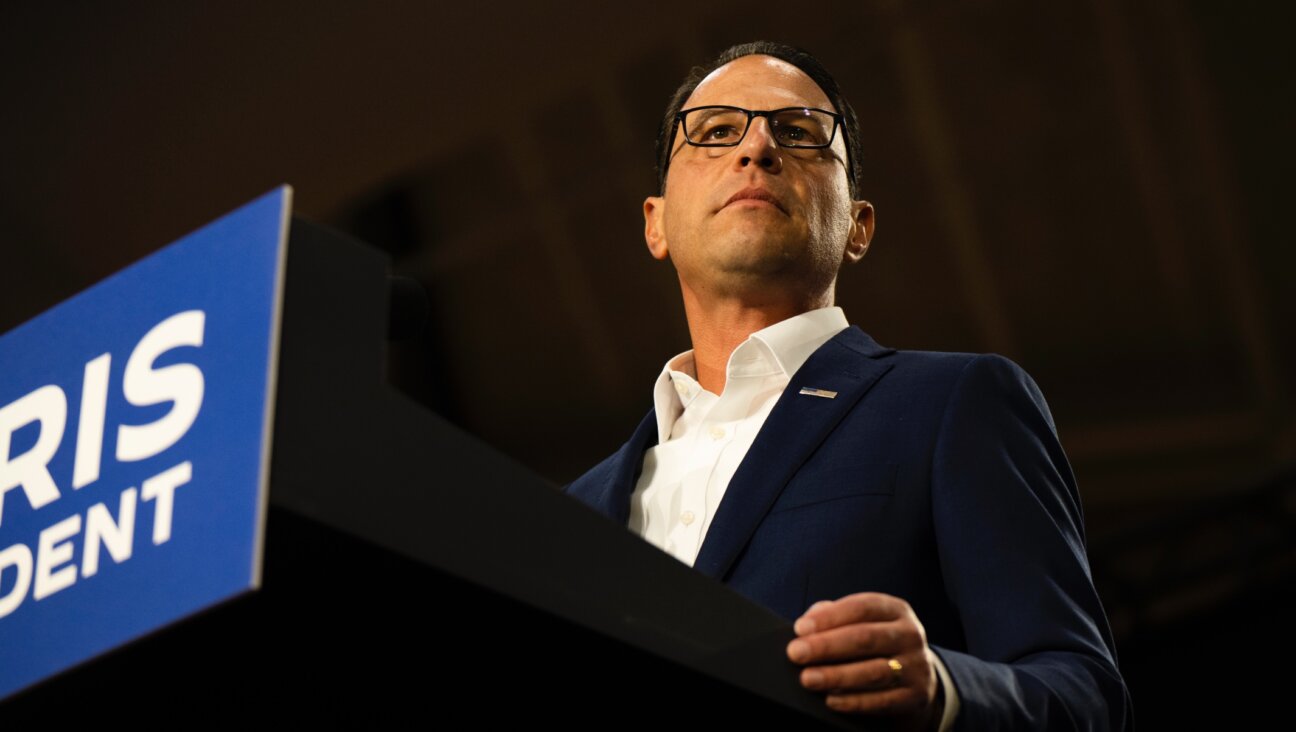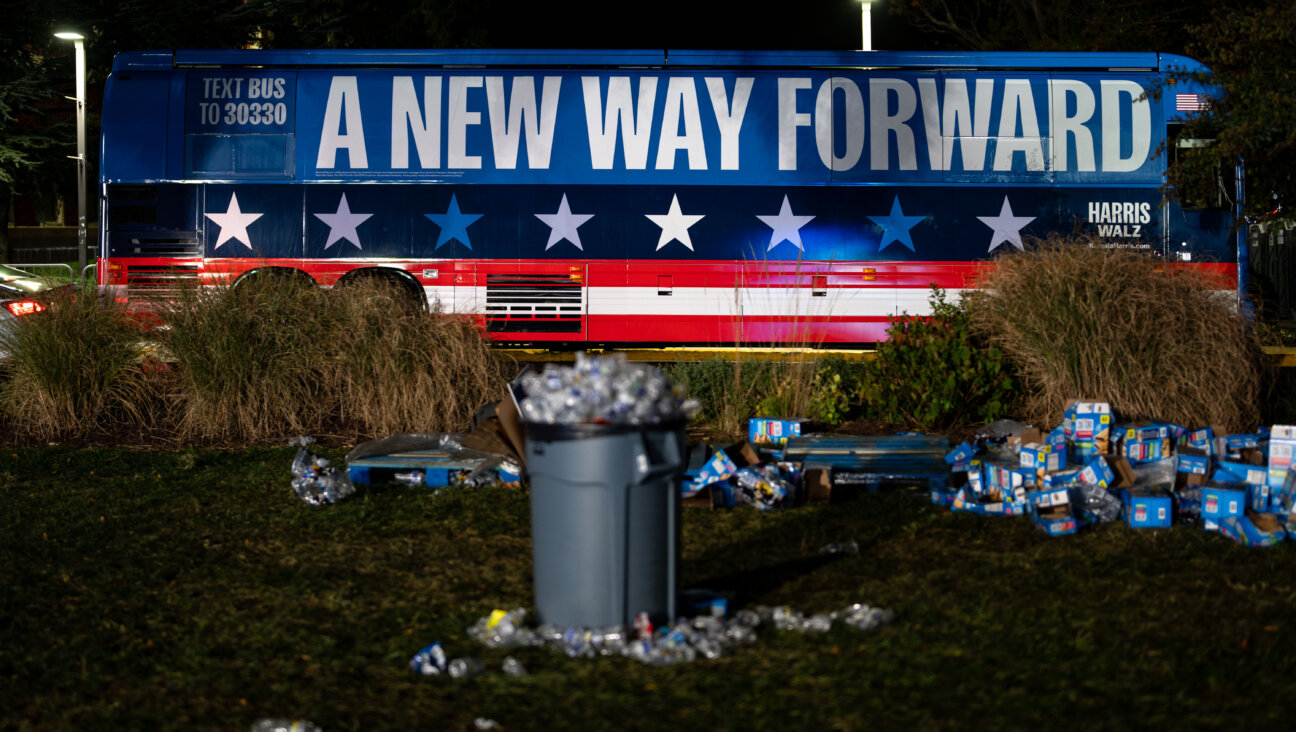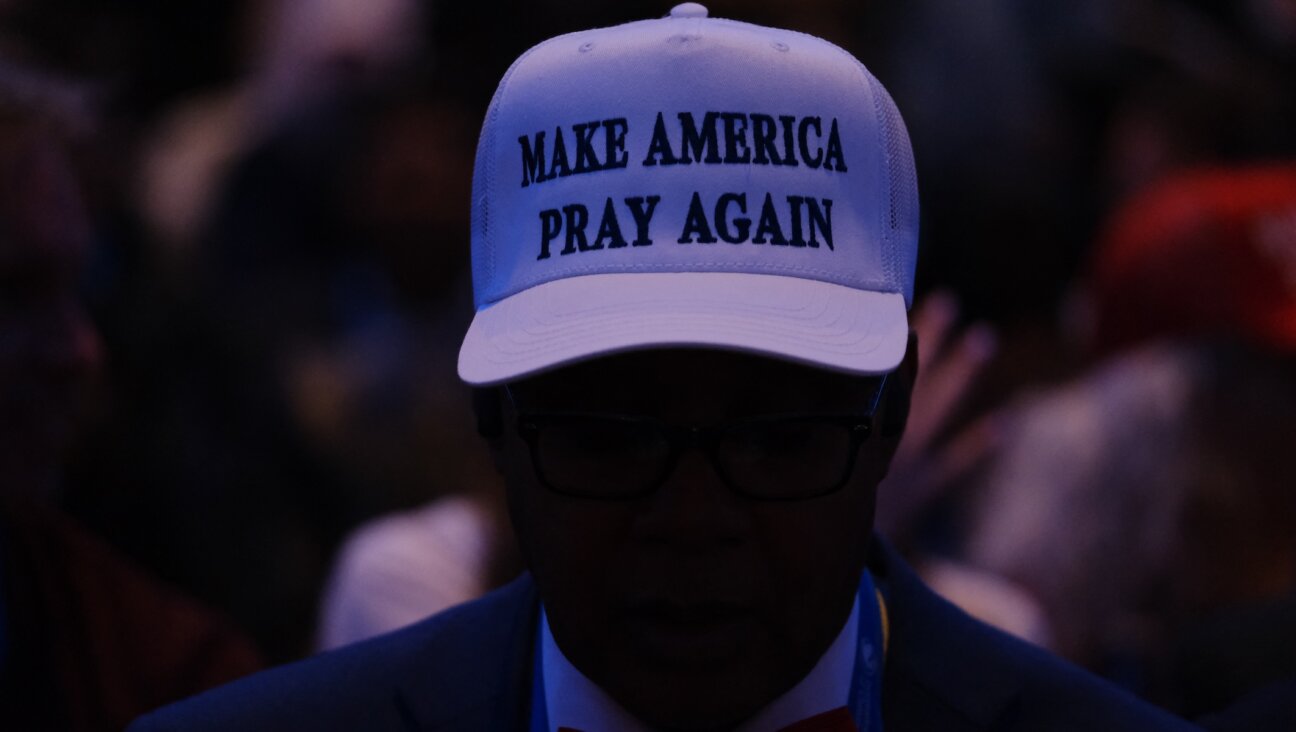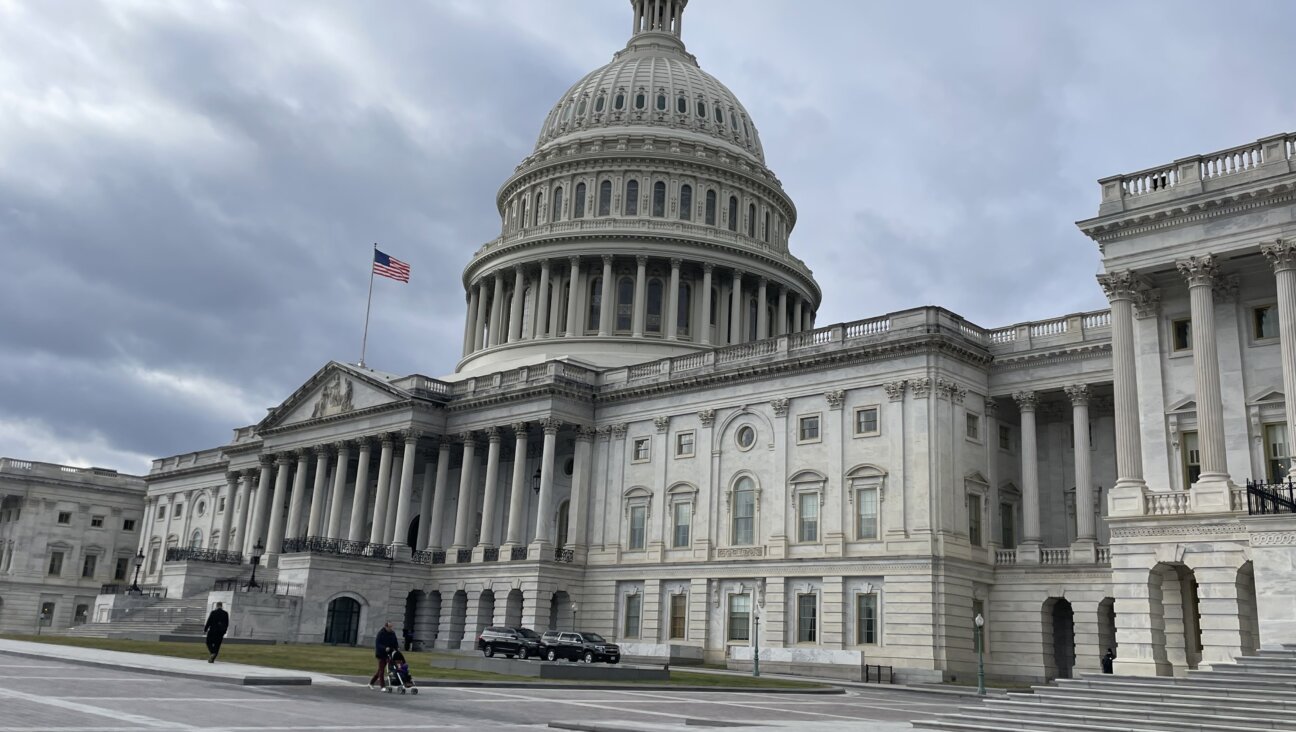In a New Twist, Israeli Civil Rights Group Stands Up for Settlers
JERUSALEM — After more than three decades of defending Israel’s deprived minorities — Arab citizens, Palestinians in the territories, gays, foreign workers and the Reform and Conservative movements — the Association for Civil Rights in Israel has a new cause: the settlers and their allies.
As the August 15 start date for the Gaza pullout nears, both the Israeli police and anti-disengagement forces have adopted increasingly aggressive tactics. One result has been that the settlers and their backers have been subject to police brutality, restrictions on their freedom of speech and freedom of movement, and unusually harsh state prosecution.
Last week, in an effort to head off an illegal march into Gaza settlements, police across Israel apprehended bus drivers or confiscated their keys to block them from taking right-wing activists to a rally just north of Gaza. Within hours of the unprecedented measures, the civil-rights association, known as ACRI, sent an angry letter to National Police Commissioner Moshe Karadi.
“The use of extreme and unauthorized measures to thwart a demonstration — even if an illegal demonstration — is reminiscent of regimes that we wouldn’t want to resemble,” the civil rights association complained.
Defending anti-disengagement protesters is an unusual task for an organization that is accustomed to protecting Palestinians from abuse of power by Jewish settlers or military forces in the West Bank and Gaza.
“For many years the settlers were a part of Israel’s establishment,” said Miriam Lidor, ACRI’s director of public affairs. “Not only didn’t they suffer discrimination but they enjoyed many privileges. Now they have fallen out of favor with the government, and, like anyone else, they deserve our advocacy where their rights are being violated.”
In the end, many Israeli observers say, the debate over the settlers’ rights goes much deeper than the question of police tactics or government restrictions on the freedom of expression. It is the tip of what many here see as a looming war over the future of the Jewish state: not only over its physical boundaries but over its very character, its core values.
Secular Israelis are accusing the religious Zionists of shattering their loyalty to the state’s sovereignty and laws by pursuing an irrational messianic dream. At the same time the national-religious camp is accusing the secular elites of using the disengagement plan to discredit their community and deprive it of its growing power within Israeli society.
“Those who walked with us hand in hand, including into the fire, have stabbed us in the back,” Rabbi Ya’akov Medan, one of the settlers’ most influential spiritual leaders, told the Israeli daily Ha’aretz. “In the past, despite our debates, I thought we had something to learn from the secular elite. Now that I have seen the secular elite stab me in the back and turn its back at its own values of democracy and human rights — I have nothing left to learn from it.” From now on, Medan said, his camp should seek an alliance with another sector of Israel’s polarized society: the ultra-Orthodox.
Some settlers in recent weeks have attacked policemen and soldiers; they have planted fake bombs in public places, with signs attached that read: “The disengagement will blow up in your faces”; they spread grease and sharp metal pins to derail and puncture tires of vehicles on a road to what will be a mass apprehension center for those resisting the pullout; they blocked key intersections, creating giant traffic jams, and violated orders forbidding them from entering Gaza; and some of their leaders openly boasted, as one key settler ideologue put it, of “the attempt by tens of thousands to undermine the foundations of the government’s rule.”
The government, in turn, has taken unprecedented steps to confront opponents of the pullout, willingly or unwittingly contributing to a brutal police response. Last week, the commander of the Israeli police’s Negev district, Brigadier General Nisso Shaham, was caught on video instructing a riot-police commander on how to confront activists trying to illegally march on to the Gaza settlements. Using foul language, Shaham encouraged the commander of the Border Police, a unit known for its harsh crowd-control methods, to “unconditionally” confront the rioters with water cannons and clubs.
“May they burn,” Shaham said. “You work how you know to work.”
Such tough talk and equally harsh action against the settlers is what attracted the support of the civil rights association. But not everyone is happy with ACRI’s current efforts. The group’s spokesperson, Lidor, said that “as usual, just like when we advocate for the rights of Arabs or prisoners, many now disagree with our advocating for the settlers.”
As for the settlers themselves, some of their leaders are expressing admiration for ACRI’s willingness to take up their cause. Yisrael Medad of Shiloh, who unofficially speaks for the settlers to the foreign press, describe the organization as “the only righteous one in Sodom.”
A message from our CEO & publisher Rachel Fishman Feddersen

I hope you appreciated this article. Before you go, I’d like to ask you to please support the Forward’s award-winning, nonprofit journalism during this critical time.
At a time when other newsrooms are closing or cutting back, the Forward has removed its paywall and invested additional resources to report on the ground from Israel and around the U.S. on the impact of the war, rising antisemitism and polarized discourse..
Readers like you make it all possible. Support our work by becoming a Forward Member and connect with our journalism and your community.
— Rachel Fishman Feddersen, Publisher and CEO





















